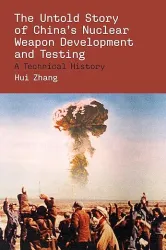Volume 42, No. 2, Fall 2017 – International Security is America’s leading journal of security affairs. The International Security journal is edited at Harvard Kennedy School’s Belfer Center and published quarterly by the MIT Press. Questions may be directed to IS@harvard.edu.
The Extremist’s Advantage in Civil Wars
Barbara F. Walter
In civil wars, extremist rebel groups have often proven more successful than their moderate counterparts. Why? In countries with competing rebel groups and weak, corrupt governance, extremist ideology helps rebels overcome three key challenges: recruiting fighters, retaining their loyalty, and convincing supporters that leaders will resist corruption once in power.
The Emerging Military Balance in East Asia: How China’s Neighbors Can Check Chinese Naval Expansion
Michael Beckley
China’s maritime neighbors have developed antiaccess/area-denial capabilities that can prevent China from dominating East Asia militarily, allowing the United States to avoid the costs and risks of expanding its forces in the region. The United States should support these states’ capabilities while improving crisis stability.
Why Nuclear Energy Programs Rarely Lead to Proliferation
Nicholas L. Miller
States with nuclear energy programs are not more likely than those without them to seek or acquire nuclear weapons. Such programs attract monitoring that can detect proliferation efforts; and they increase states’ vulnerability to nonproliferation sanctions. The United States should therefore enhance these restraints on nuclear proliferation.
Rousing a Response: When the United States Changes Policy toward Mass Killing
Amanda J. Rothschild
When do U.S. presidents strengthen the government’s response to mass killing? Three factors matter: dissent within the president’s inner circle; congressional pressure; and the threat of personal political costs for the president. The 1944 creation of the War Refugee Board, which saved 200,000 Jews during the Holocaust, offers a clear example of such a policy shift.
On Systemic Paradigms and Domestic Politics: A Critique of the Newest Realism
Kevin Narizny
Proponents of neoclassical realist approaches to international politics attempt to incorporate domestic factors, such as public opinion or regime stability, into realist interpretations, which focus on the structure of the international system. Neoclassical realism is, however, incoherent, unnecessary, and leads to methodological errors. Scholars should therefore abandon it.
International Security Program Highlights. Belfer Center Newsletter, Belfer Center for Science and International Affairs, Harvard Kennedy School, Fall/Winter 2017-2018.











